The unique benefits of CBD oil have driven its meteoric rise in popularity in Australia as a natural support for health and well-being.
For many, it has become an indispensable part of their daily routine, which they can’t live without.
CBD oil’s uses are so broad and varied that it’s almost hard to believe they could be true.
Yet clinical studies into this natural product continue to build evidence for its incredible effects and health-promoting properties.
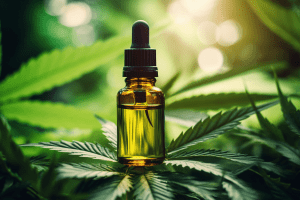
In many cases, it’s even well-suited as an alternative to pharmaceuticals such as NSAIDs for many conditions.
Advantageously, it comparably has far fewer side effect risks when used long-term.
The full-spectrum benefits of CBD oil mean it can significantly help with arthritis, sleep, anxiety, depression, pain, focus, gut health, dry skin, psoriasis, cardiovascular health, acne, epilepsy, addiction, stress, weight loss and inflammation.
Its wide variety of therapeutic applications means it is adept as a general aid for well-being or targeted relief for particular health conditions.
Let’s delve into the true benefits of CBD oil. We’ll also examine the evidence for its effects so you can understand why you might use it.
Contents
Understanding the Effects of CBD Oil

In many ways, the benefits of CBD oil make it a holistic and ‘full-spectrum’ health agent.
It promotes overall wellness through many complex and interrelated metabolic pathways.
Due to the complexity of how cannabinoids like CBD are metabolised, absorbed and used within the body, we are still learning how they work.
New effects are still being discovered.
Wider-scale research into compounds like CBD consistently reveals new, previously unknown uses.
Initially, it was thought that cannabinoids acted through two cannabinoid receptor types.
- In the brain and CNS, CB1 cannabinoid receptors drive most of CBD oil’s neurological and mental effects.
- Its immune, pain and inflammatory benefits are stimulated through CB2 cannabinoid receptors. These occur throughout the body, including the immune and nervous systems.
While CBD activates these receptors as part of its action on the endocannabinoid system, it also has many other effects within the body.
The method it works is more complicated than cannabinoid receptor activation alone.
Neurotransmitter and Endocannabinoid Activity
For example, CBD interacts with several non-cannabinoid brain receptors. It can act on the serotonin and GABA neurotransmitter receptors. This means it can alter neurotransmitter levels.
These interactions are intricate, and little is understood about them. Yet unlocking their secrets may enable us to more thoroughly understand the true benefits of CBD oil for anxiety, depression, ADHD and epilepsy.
The body produces its endogenous cannabinoid compounds called endocannabinoids in response to the absorption of cannabinoids. Endocannabinoids, such as Anandamide and 2-AG, have complex metabolic interactions. They confer powerful anti-inflammatory, anxiolytic and pain-mitigating benefits. Each works across multiple metabolic pathways.
Because it functions through multiple metabolic pathways, CBD oil has:
- Mental health benefits through the brain’s CB1 receptors and neurotransmitter receptor interactions;
- Inflammation and pain benefits via the body’s CB2 receptors throughout the organs, tissues and peripheral nerves;
- Metabolic, antioxidative, and immunity benefits through complex endocannabinoid activity at the cellular level.
The variety of ways CBD oil works in the body, mind and cells is the reason behind its deep ‘full-spectrum’ of effects.
What are the Top Benefits and Uses of CBD Oil?

Today, we know many of CBD oil’s benefits and uses from scientific research.
There is a deep body of clinical evidence backing its therapeutic properties.
But while we know a lot, research is still ongoing. The complexities and mysteries of this natural extract have yet to be fully revealed. As such, we can expect future discoveries on its health effects.
It’s time to reveal the top benefits of CBD oil, its main uses and the evidence behind each.
Neurological & Mental Health
CBD oil’s robust mental health and neurological benefits are what it’s most famous for.
These benefits include the ability to help with:
- Anxiety and depression
- Sleep
- Stress and PTSD
- Addictions and cravings
- Epilepsy
Some of these mental effects have greater clinical evidence than others. In particular, CBD’s ability to combat epilepsy is possibly its most clinically proven use case.
Counteracting Anxiety & Depression

Studies have demonstrated the anxiolytic and antidepressant qualities that CBD oil offers.
It’s well known to lower mental distress via multiple avenues. Specifically, it aids in normalising mood, promoting calmness and suppressing anxious feelings.
Clinical studies have proven it can reduce symptoms of differing forms of anxiety. This includes:
- Social anxiety
- General anxiety disorders
- Separation anxiety
- Phobias
CBD’s serotonin-modulating properties also enable it to assist in balancing mood and preventing negative emotions from worsening depressive symptoms. These properties are similar to antidepressants like SSRIs but not quite as strong.
An advantage CBD oil has over traditional depression medications is that it won’t cause addiction. Long-term use of SSRIs often causes dependence. This dependence risk often makes them unsuitable for sustained usage. They can be significantly tricky to wean off, which isn’t the case with natural alternatives like CBD gummies.
Side effects of pharmaceutical antidepressants are typically also more severe. Some people experience insomnia, mood swings, irritability, or even worsening of depressive symptoms. In comparison, CBD oil is milder and has rare side effects. Due to its lower strength, it can’t replace SSRIs as a pharmacological depression treatment. But it can still be very useful and practical for promoting mood.
Several trials have demonstrated CBD’s capability to mitigate anxiety. In one study, a group of people with social anxiety were given moderate 200mg dosages of CBD oil before a public speaking presentation. Their anxiety symptoms were compared to a control group given a placebo. As expected, the test group showed markedly lower levels of anxiousness during the presentation. Additionally, the group displayed reduced cognitive and physiological symptoms of anxiety. Physiological symptoms such as sweating, heart rate increases, pulse changes and stress were all suppressed. Endocannabinoids like Anandamide provide these anxiety-alleviating benefits by downregulating stress activity in the brain’s hypothalamus.
Supporting Sleep Health

Enabling better and longer sleep is another valuable health benefit CBD products provide.
It assists people with their sleep in multiple ways.
Firstly, CBD enables those who suffer from chronic stress or anxiety to get to sleep more easily. Overactive thoughts and cortisol release at night from anxiety can be very detrimental to sleep patterns. Night-time stress causes alertness and delays the onset of sleep. Taking CBD gummies or oil an hour or two before bed helps many to quash their anxiety symptoms and wind down so they can sleep properly.
In addition, CBD’s endocannabinoid activity helps with circadian rhythm, REM-stage length and overall sleep quality. Users typically report having more regular sleep-wake cycles and normalised sleeping patterns within weeks of using it. Boosting the amount of REM and restorative deep sleep at night means CBD oil helps the brain and body recover. These are the most vital stages of sleep, where hormone, cell and tissue rejuvenation peaks.
The most effective use of CBD oil for sleep is combatting anxiety-related insomnia. Research indicates it is more useful amongst those who have insomnia because of their anxiousness. As the cannabinoid is anxiolytic and can suppress anxiety, its capacity to help with sleep amongst these individuals is magnified. This effect was strongly displayed in a 2019 sleep study. Doses of CBD oil were given to a cohort of patients who had insomnia due to anxiety over several weeks. Over two-thirds of the group saw substantial increases in their sleep score quality after taking a nightly dropper dose. 80% of the test group also reported markedly lower anxiety.
Mitigating Stress & PTSD

CBD oil is used by people who are overly stressed because it can help with relaxation and mental calm. It reduces susceptibility to stress symptoms by lowering stress response activation.
Those who are chronically stressed tend to suffer from overactive stress or a ‘fight and flight’ response. It can cause them to become ‘stuck’ in a heightened sympathetic nervous state. When the sympathetic nervous system is too active, an individual will experience constant alertness, raised heart rate, racing thoughts and sweating. It can make it very hard to calm down.
Sleep quality can become impaired. Often, weight gain occurs because of stress eating and cortisol as a side effect.
Using CBD oil is an excellent way for many with these high-stress levels to regain mental composure and minimise chronic stress symptoms. The cannabinoid relaxes the mind via CB1 cannabinoid receptor activation. When these receptors in the hypothalamus are triggered, it leads to calming, stress-suppressing endocannabinoids to block sympathetic nervous activity.
CBD’s PTSD Benefits
Another effect of CBD is supporting the stimulation of GABA neurotransmitter production in the brain. GABA is the inhibitory neurotransmitter. It works to dampen or block neurological pathways. One of these pathways is the fear response in the brain’s amygdala and hypothalamus. This pathway is responsible for feelings of anxiety. Boosting GABA levels helps to block the fear response, which is indispensable for anxious individuals.
This use of CBD oil even extends to mitigating symptoms of PTSD. This condition presents as highly acute stress or panic attacks. But it occurs along the same brain pathways as stress and anxiety. For example, in 2018, a study explored the use of CBD oil for PTSD on 11 subjects. Each was given drops over eight weeks as a complement to psychological treatment and counselling. Across the group, marked improvements in PTSD symptoms were recorded. Patients had reduced night terrors, fewer flashbacks and lowered anxiety. No side effects were reported. Evidence for CBD oil’s benefits in treating PTSD is still early, but the initial signals are promising for this stress-related condition.
Helping Break Addictions

Those who suffer from addictions often find CBD oil helps suppress cravings and reduces stress-related addiction triggers.
While it doesn’t cure addiction, it’s known to assist individuals in curbing the emotions that cause relapses to addictive behaviour.
All addictions relate to disorders in the brain’s dopamine neurotransmitter. It’s responsible for motivation and reward-seeking. Habits form when a particular behaviour is rewarded and dopamine is released. This can lead to addictions where these habits become compulsive from dopamine dysregulation.
Many such habits centre around stress or specific emotional states. For example, smoking frequently becomes a response to feeling ‘stressed’. Preventing these distressed mental states is key to lowering the draw of addictive tendencies. The use of CBD oil for addiction is valuable here. It promotes calmness in the mind, helping addicts to resist the urges or cravings they experience from stress.
Clinical Evidence
It’s important to note that the research on CBD’s addiction-mitigating benefits is sparse. Some studies have highlighted the cannabinoid’s ability to stem smoking cravings (or ‘cigarette cues’) when used in high dosages of 800mg daily. In these studies, smokers were shown pictures of people smoking or drinking to stimulate cravings. Among the subjects given CBD oil, cravings were nearly non-existent, and the cue to smoke was blocked.
Some pre-clinical trials also suggest it could help treat opioid addiction. A study in 2019 trialled the use of CBD oil to help mitigate heroin use disorders. Over several weeks, the use of this product significantly reduced cravings, withdrawal anxiety and stress in opiate users. No adverse effects were detected in any test subject. CBD products appear particularly beneficial in supporting withdrawal symptoms. They help to counteract symptoms like anxiousness, insomnia, and mental distress in those who stop using addictive substances like heroin. More human trials are needed to corroborate these early findings and replicate their results.
Preventing Epilepsy

Extensive research has been conducted on the effects of CBD oil in reducing seizures in individuals who have epilepsy.
Approximately 1% of Australians are affected by epilepsy, which causes involuntary and often dangerous seizures. The ability to lower seizure frequency and impact is one of the most potent benefits of products like CBD gummies.
This property has been demonstrated in clinical research. In 2017, a double-blind study was performed to test CBD oil as an epilepsy treatment. It involved 120 children and adults with epilepsy who were given dosages each day for 14 weeks. Nearly half of the test group reported a 50% reduction in seizure frequency and severity. Some even reported a complete cessation of their epilepsy symptoms. Optimal results were observed in high doses of 500mg or more daily.
Because it’s so effective for epilepsy, CBD has already been formulated into therapeutic medications for seizure treatment. It’s available in Australia as an anti-epilepsy medication called Epidiolex. The TGA authorized the use of a CBD spray under this brand name in 2020 for treating seizures related to Lennox-Gastaut syndrome and Dravet syndrome, two diseases that cause epilepsy. This approval was based on a review of multiple clinical studies that tested CBD’s efficacy in suppressing epilepsy. Across these studies, over 500 patients with one of the two epilepsy syndromes received doses of Epidiolex or a placebo. Those given the medication displayed a significant decrease in seizure frequency and length. The CBD-based medication was also very well tolerated across subjects and showed few side effects.
Enabling Focus & Concentration
Surprisingly, CBD oil can help with concentration and positively affects focus. It helps to create mental balance, preventing disruptions to thought from distractions.
This can be particularly useful for people with ADHD or those who need to maintain focus for extended periods. But unlike nootropics such as modafinil, CBD doesn’t appear to modulate dopamine or cognitive centres responsible for concentration directly.
Instead, its ability to calm the mind and reduce stress enables mental clarity. Many find it aids them in delving into their work, finding a flow state and staying on task for greater productivity. Some people with ADHD correspondingly find remarkable attention benefits from using CBD oil daily. The condition can cause high distractibility, wandering thoughts and procrastination challenges. But getting into a calm, composed and clear frame of thought often means these friction points disappear. Taking a few
CBD drops before a challenging study session or mentally taxing workday can lead to surprising results. Trying it out could be a good idea if you’re looking for enhanced mental acuity.
Effects on the Body
Within the body’s organs and tissues, CBD activates CB2 cannabinoid receptors to provide several attractive physiological benefits. It aids with several areas that include:
- Heart and cardiovascular function
- Weight loss
- Reducing certain types of pain
The anti-inflammatory potency of CBD oil underlies most of these benefits.
Aiding Cardiovascular Health

CBD oil’s ability to suppress the stress response helps individuals lower their blood pressure and limit the cardiovascular risks of cortisol.
Too much cortisol from stress is detrimental to the heart. Cortisol is the stress hormone that elevates heart rate and stimulates vasoconstriction. It taxes the heart significantly if chronically produced. Over time, it will raise blood pressure, weaken the blood vessels and cause circulatory problems.
It contributes significantly to hypertension, stroke and heart disease. You probably know of someone who was stressed throughout life and suffered from a premature heart attack. Cortisol is the cause of many such cases.
For some, the use of CBD gummies or tinctures is a good way to help mitigate the detrimental consequences of stress and cortisol.
When it binds to the endocannabinoid system, CBD stimulates the release of Anandamide. This endocannabinoid relaxes and lowers cortisol levels. But it also helps to open the blood vessels directly. Research on endocannabinoids has revealed that they are vasodilators. This means they can reduce blood pressure by widening the blood vessels. Endocannabinoids may represent a new method for mitigating cardiovascular disorders and hypertension. In a recent study, CBD oil was given to two groups of hypertensive and non-hypertensive subjects over five weeks. Daily use of the product lowered blood pressure across both groups compared to placebo.
Supporting Weight Loss

A surprising use of CBD oil is assisting people with losing body fat. It achieves this through CB2 cannabinoid receptor activity in adipose tissue.
When it stimulates these receptors, it influences metabolic or fat storage signals in the body. This alters the metabolic state of fat cells. The body responds by ‘browning’ fat cells more readily. This increases their availability as a fuel source.
Fat cells can be white, brown, or beige. White fat is the most stubborn and difficult to burn, while brown fat is the easiest. Beige fat consists of cells transitioning between these two states.
Endocannabinoids stimulate white fat cells to become beige. They can then more easily be converted to highly accessible brown fat.
In other words, CBD oil can help people burn fat more quickly from stubborn fat areas. It’s also associated with better appetite control and reduced stress eating by assisting with hormone regulation. The cannabinoid helps to control over-eating while simultaneously promoting body fat elimination.
Suppression of Pain

CBD oil can be good for reducing pain in specific scenarios. But it isn’t practical for all pain types or severities.
It primarily assists in mitigating symptoms of neuropathic pain, which occurs through the nerves. The way it enables this is by partially blocking nociception. Nociception is the ‘sensation’ that carries pain to the brain from nerve signals.
Intervening in this signalling and reducing nerve pain sensitivity is helpful for some conditions or injuries. For example, CBD oil can help with neuropathic pain that occurs from arthritis, nervous system conditions, or injury.
What often makes it particularly attractive is its safety and lack of addictive properties in comparison to traditional painkillers. Doctors often prescribe opioids like Endone for pain relief, but these drugs are highly addictive and can cause various side effects for many users. Moreover, pharmaceutical painkillers aren’t well tolerated for most people. They can cause drowsiness, lethargy, gut irritation and constipation. It’s not always possible to substitute these medications with CBD oil.
Recent studies have revealed CBD gummies to be effective for managing neuropathic pain. Although it is more efficacious when combined with THC. Anecdotal reports appear to support these findings. However, more trials are needed as the evidence is still inconsistent. This is potentially due to the wide variance in pain types, symptom severity, and people’s unique perceptions of their pain. Promisingly, CBD creams can be used topically to help target painful regions. It allows a greater ability to counteract aches or discomfort by activating CB2 cannabinoid receptors in a specific region. While it won’t remove pain or treat its cause, it can help dampen its perception.
Metabolic & Immune Uses
The body’s endocannabinoid system has a direct ability to influence immune function. Due to this, cannabinoids like CBD can alter immune activity, which has profound benefits for inflammation and metabolism.
Calming Inflammation
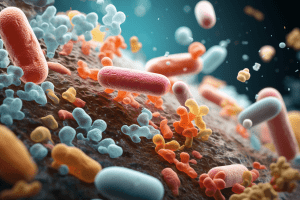
Products like CBD oil are well known for their anti-inflammatory benefits.
It can help reduce inflammation by suppressing the production of inflammatory proteins like cytokines and prostaglandins. The immune system produces these compounds, which help to regulate immune cells. Each can cause rampant inflammation and contribute to chronic health conditions if they become dysregulated. Lowering and normalising their levels is a significant benefit CBD oil can provide for inflammation symptoms.
Interestingly, CBD can interact with the PPAR-gamma receptor. This receptor type plays a critical role in regulating the inflammatory response. Studies have shown that the cannabinoid’s CB2 receptor agonism reduced rodent TNF-alpha levels. TNF-alpha is a cytokine that plays a significant part in many autoimmune conditions. It can contribute to atherosclerosis, insulin resistance, and type 2 diabetes. Lowering its levels helps to reduce oxidative stress and inflammation. Antioxidative properties of cannabinoids like CBD also defend the cells from damage while reinforcing their function.
Preventing Acne

CBD oil’s anti-inflammatory powers make it well suited to remedying skin conditions like acne.
Acne causes frequent ‘breakouts’ of pimples, boils or skin blemishes that can be unsightly and cause infections.
It can be caused by various factors such as genetics, bacteria, inflammation, and overproduction of natural oils in the skin. These oils are called ‘sebum’ and can cause clogged pores and pimples when imbalanced.
CBD oil or topicals help to counteract inflammatory irritation and sebum dysregulation in acne-prone skin, which mitigates symptoms.
These products work to balance sebum levels and lower oiliness. Yet they also promote moisture levels and skin cell health. Using CBD cream on the skin can be an effective natural treatment for this frustrating skin disorder. The research supports this.
For instance, a study conducted in Australia found that CBD prevents sebum glands from overproducing excessive sebum and has anti-inflammatory effects similar to drugs used to treat acne. The cannabinoid stimulates CB2 receptors in the skin. They locally disperse soothing anti-inflammatory endocannabinoids within the skin’s layers on activation. These regulate hormone levels, downregulate inflammation, and normalise sebum production. Topical use of CBD in ointments or creams helps the skin self-regulate and avoid becoming too oily or dry. Applying them to acne-prone skin for several weeks enables better acne management plus the restoration of skin moisture.
The potency of CBD’s acne-preventing potential was revealed in a 2014 study. Researchers tested the cannabinoid’s ability to change sebum concentrations in human skin cells in vitro. In the experiment, CBD lowered levels of pro-acne agents in the skin that caused excessive sebum. In addition, it aided with hormone balance and stimulated anti-inflammatory effects that soothed skin irritation. The researchers concluded that topical CBD is an effective means to treat acne.
Mitigating Arthritis & Joint Aches

Another everyday use of CBD oil is in combatting arthritis.
It can limit the inflammation and joint pain caused by this condition.
Arthritis leads to the degeneration of joint tissues. Over time, it causes irritation and stiffness in the knees or other joints. Conventional treatments for it use NSAIDs or corticosteroid drugs to lower inflammatory signs and mitigate pain. While effective, they can have significant downsides. Long-term use of these compounds is dangerous due to their accumulation in the liver and kidneys. If taken excessively or for too long, they can cause toxicity and organ damage.
A natural alternative being used by many is CBD oil for arthritis. It offers both analgesic and inflammation-combatting effects, which make it well-suited to tackling joint problems. Unlike pharmaceutical anti-inflammatories, CBD oil can also be safely taken for long periods and in large quantities. It’s a significant advantage for people who need sustained relief from their irritating arthritis pain.
The cannabinoid works against arthritis through CB2 cannabinoid receptor action within the joints. When activated by CBD, these receptors help to soothe inflammation by reducing cytokine production in the region. Cytokines are inflammatory proteins that worsen arthritis symptoms. In lowering their levels, CBD oil reduces joint pain, facilitating better joint mobility and unlocking stiffness. It can also help block some neuropathic pain radiating from the joint’s nerves when arthritis strikes.
Promoting Gut Health
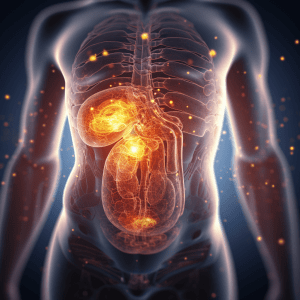
While it’s a lesser-known benefit, CBD oil is great for gut health.
Gastrointestinal health is vital for overall well-being. It plays a fundamental role in the absorption of nutrients and the regulation of metabolism. Disruptions in the gut’s flora or delicate biome can detrimentally impact these essential processes.
CBD oil has been studied for its effectiveness in treating inflammatory gut conditions, such as colitis and Irritable Bowel Syndrome (IBS). It works for these conditions via the gut’s CB2 receptors. This pathway helps normalise immune signalling and gut irritability. Specifically, it reduces the impact of cytokines from aggravating the gut’s lining. Preventing this can help improve gut permeability and vitamin absorption. It assists many people with symptoms of leaky gut syndrome.
Recent studies have verified CBD’s gut benefits. Chiefly by understanding the endocannabinoid system’s ability to regulate gastrointestinal processes.
An experiment conducted in 2010 tested the effects of CB2 receptor activation in the gut for treating irritable bowel syndrome. The study involved 36 participants who were given a solution containing THC and CBD oil over several days. It showed that cannabinoids helped with colon movements and bowel emptying and helped with alleviating discomfort from IBS. These results demonstrate that the true usefulness of CBD oil for the gut is potent.
Reversing Dry Skin & Psoriasis
When used topically, CBD oil can treat skin conditions such as psoriasis and assist in managing excessive skin dryness.
Psoriasis is a frustrating inflammatory autoimmune skin ailment. It causes the skin to be very sensitive to allergens like dust or bacteria. When the skin encounters these irritants, psoriasis causes the immune system to overreact.
It triggers the skin to produce unnecessary skin cells while also causing redness, itchiness and dryness. The skin cells build up into unsightly skin lumps or patches. To combat psoriasis, dealing with its underlying inflammatory cause in the immune system is important.
Using CBD for Psoriasis
This is where CBD oil is helpful. It can soothe the overactive inflammatory reaction that leads to this skin problem. When it triggers the CB2 receptors in the skin layers, psoriasis symptoms subside. That’s due to endocannabinoids from these receptors normalising skin production and sebum levels. CBD helps the skin’s glands regulate lipids, hormones and oils naturally throughout each layer.
But unlike synthetic psoriasis drugs, CBD topicals won’t dry out the skin. Many psoriasis medications are targeted towards reducing inflammation by altering COX enzyme levels. In most cases, this works but can worsen problems with dry, flaky skin. Promoting sebum levels without causing dryness is a crucial way that cannabinoids like CBD aid in reversing the symptoms of psoriasis. But they also add healthy, nourishing lipids to the skin through their polyunsaturated fat content.
Due to being derived from hemp, CBD oil contains polyunsaturated fats like gamma-linoleic acid, plus omega 3 and 6 fatty acids. Each of these nutrients helps to moisturise and replenish the skin. Natural fatty acids balance the skin’s pH levels, keeping it healthy and hydrated. Many cannabinoids are also antioxidative, protecting skin cells from environmental damage like sun exposure. CBD cream can help restore the skin’s natural defence barrier, moisturizing and enriching it with essential vitamins. It prevents psoriasis or skin dryness and may even promote the reversal of skin aging. Because of its excellent skin benefits, we expect CBD oil will increasingly form part of a range of skin treatments in the future.
Do Experts Recommend CBD Oil?
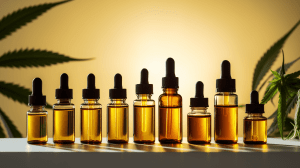
Many health practitioners and experts on chronic conditions like arthritis are rapidly viewing CBD oil as a multi-target, effective, broad-spectrum treatment option. It’s safe, non-addictive, and low in side effect risks, making it suitable for many people.
These characteristics have been recently reflected in the changing nature of regulations on CBD oil in Australia. It was made available in 2021 to purchase without a doctor’s prescription. This means it can now be bought over the counter in locations like pharmacies.
Doctors are increasingly prescribing higher-potency CBD oil for conditions like insomnia, epilepsy, anxiety, pain and arthritis. It is frequently prescribed for Dravet syndrome and epilepsy via Epidiolex medications. Amongst those with chronic pain or nausea, medications containing a mixture of THC and CBD are often prescribed to combat symptoms. The combination of these two cannabinoids is synergistic and amplifies the abilities of each to lower pain or counteract nausea.
Increasing Medical Adoption of CBD Products
Increasingly, psychiatrists are employing CBD products as natural methods to help those with anxiety or insomnia to relax and sleep more easily.
Dermatologists often recommend CBD-infused topical creams for skin conditions with an underlying inflammatory cause. Cases of acne, eczema, or psoriasis are more commonly treated with these topicals because of their anti-inflammatory effects.
Across the board, CBD products offer a robust natural alternative to pharmaceuticals and many prescription medicines, such as NSAIDs or corticosteroids. The heightened interest in the cannabinoid amongst experts and rapidly growing clinical evidence for its effects are signs that it is coming into mainstream adoption.
Regardless of your consideration, ensure you speak to your physician before trying CBD oil. They’ll help you form a treatment plan, obtain the right product, and avoid potential risks from medication interactions or side effects.
Conclusion
As a potent natural cannabinoid extracted from hemp, the benefits of CBD oil for health are both wide and varied. It has full-spectrum neurological, metabolic, bodily, and immune benefits. Because of its versatility, it has numerous potential applications. In the brain and central nervous system, it can help alleviate anxiety and depression, prevent epilepsy, improve sleep, and soothe those suffering from chronic stress. CBD’s soothing properties within the body make it practical for weight loss, blood pressure, and certain types of pain. It’s also helpful for several inflammatory or immune disorders, including acne, arthritis, IBS, and psoriasis. Moreover, CBD oil is natural and highly safe, making it an excellent choice for anyone seeking its varied health benefits.
References
- Bergamaschi MM;Queiroz RH;Chagas MH;de Oliveira DC;De Martinis BS;Kapczinski F;Quevedo J;Roesler R;Schröder N;Nardi AE;Martín-Santos R;Hallak JE;Zuardi AW;Crippa JA; (n.d.). Cannabidiol reduces the anxiety induced by simulated public speaking in treatment-naïve social phobia patients. Neuropsychopharmacology : official publication of the American College of Neuropsychopharmacology. https://pubmed.ncbi.nlm.nih.gov/21307846/
- Shannon, S., Lewis, N., Lee, H., & Hughes, S. (2019a). Cannabidiol in anxiety and sleep: A large case series. The Permanente journal. https://www.ncbi.nlm.nih.gov/pmc/articles/PMC6326553/
- N;, E. L. S. S. (n.d.). Cannabidiol in the treatment of post-traumatic stress disorder: A case series. Journal of alternative and complementary medicine (New York, N.Y.). https://pubmed.ncbi.nlm.nih.gov/30543451/
- Hindocha, C., Freeman, T.P., Grabski, M., Stroud, J.B., Crudgington, H., Davies, A.C., Das, R.K., Lawn, W., Morgan, C.J.A. and Curran, H.V. (2018). Cannabidiol reverses attentional bias to cigarette cues in a human experimental model of tobacco withdrawal. Addiction, 113(9), pp.1696–1705. https://www.ncbi.nlm.nih.gov/pmc/articles/PMC6099309/
- Hurd, Y.L., Spriggs, S., Alishayev, J., Winkel, G., Gurgov, K., Kudrich, C., Oprescu, A.M. and Salsitz, E. (2019). Cannabidiol for the Reduction of Cue-Induced Craving and Anxiety in Drug-Abstinent Individuals With Heroin Use Disorder: A Double-Blind Randomized Placebo-Controlled Trial. American Journal of Psychiatry, 176(11), pp.911–922. https://ajp.psychiatryonline.org/doi/10.1176/appi.ajp.2019.18101191
- Perucca, E. (2017). Cannabinoids in the Treatment of Epilepsy: Hard Evidence at Last? Journal of Epilepsy Research, [online] 7(2), pp.61–76. https://www.ncbi.nlm.nih.gov/pmc/articles/PMC5767492/
- New drug: Cannabidiol for epilepsy (Lennox-Gastaut syndrome, Dravet syndrome). (2020). Australian Prescriber. https://australianprescriber.tg.org.au/articles/cannabidiol-for-epilepsy-lennox-gastaut-syndrome-dravet-syndrome.html
- Hillard, C.J. (2000). Endocannabinoids and vascular function. The Journal of Pharmacology and Experimental Therapeutics, [online] 294(1), pp.27–32. https://pubmed.ncbi.nlm.nih.gov/10871291/
- Dujic, G., Kumric, M., Vrdoljak, J., Dujic, Z. and Bozic, J. (2023). Chronic Effects of Oral Cannabidiol Delivery on 24-h Ambulatory Blood Pressure in Patients with Hypertension (HYPER-H21-4): A Randomized, Placebo-Controlled, and Crossover Study. Cannabis and Cannabinoid Research. https://pubmed.ncbi.nlm.nih.gov/37093160/
- Xu, D.H., Cullen, B.D., Tang, M. and Fang, Y. (2020). The Effectiveness of Topical Cannabidiol Oil in Symptomatic Relief of Peripheral Neuropathy of the Lower Extremities. Current Pharmaceutical Biotechnology, 21(5), pp.390–402. https://pubmed.ncbi.nlm.nih.gov/31793418/
- Henshaw, F.R., Dewsbury, L.S., Lim, C.K. and Steiner, G.Z. (2021). The Effects of Cannabinoids on Pro- and Anti-Inflammatory Cytokines: A Systematic Review of In Vivo Studies. Cannabis and Cannabinoid Research, 6(3), pp.177–195. https://www.ncbi.nlm.nih.gov/pmc/articles/PMC8266561/
- Oláh, A., Tóth, B.I., Borbíró, I., Sugawara, K., Szöllõsi, A.G., Czifra, G., Pál, B., Ambrus, L., Kloepper, J., Camera, E., Ludovici, M., Picardo, M., Voets, T., Zouboulis, C.C., Paus, R. and Bíró, T. (2014). Cannabidiol exerts sebostatic and antiinflammatory effects on human sebocytes. The Journal of Clinical Investigation, [online] 124(9), pp.3713–3724. https://www.ncbi.nlm.nih.gov/pmc/articles/PMC4151231/
- clinicaltrials.gov. (n.d.). CTG Labs – NCBI. [online] https://clinicaltrials.gov/ct2/show/NCT01253408
FAQs
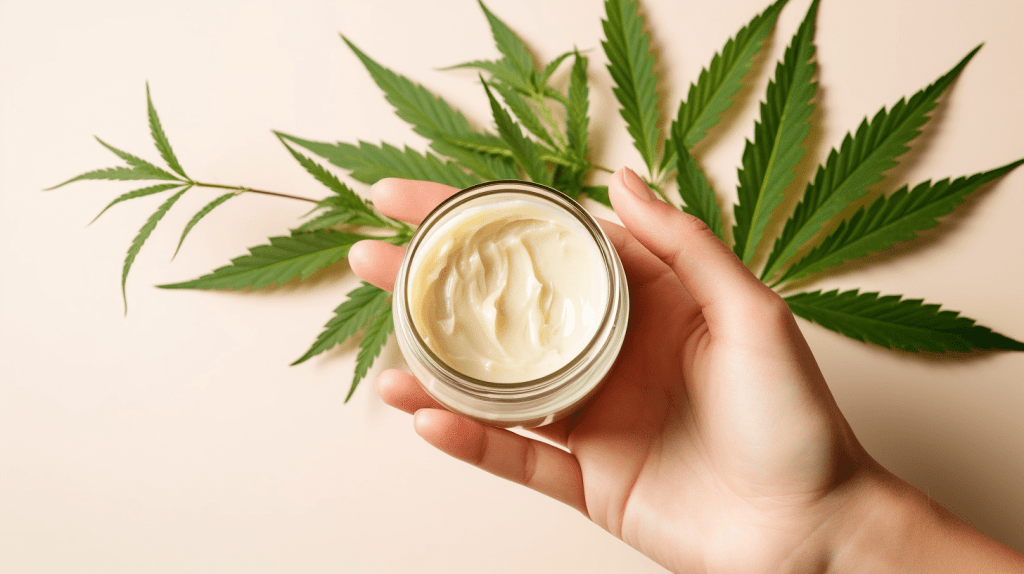
In some studies, CBD oil has demonstrated anti-inflammatory and analgesic (pain-relieving) properties. These effects are primarily the result of endocannabinoid activity that the cannabinoid stimulates. Endocannabinoids such as 2-AG modulate immune function to reduce inflammatory compounds from being produced by the body. They also act on nerve cells to alter their signalling and dampen pain sensations. While it won’t work for all types of pain or inflammation, CBD oil is increasingly being applied as a natural method to help with symptoms of many conditions that cause these problems.
While effective for rheumatoid arthritis, CBD oil is less effective for joint degeneration that occurs with osteoarthritis, as it isn’t caused by inflammation. The capacities of CBD to stimulate CB2 receptors in joint tissue enable it to soothe rheumatoid arthritis inflammation symptoms. In addition, it offers some properties in analgesia or pain reduction that can aid people living with arthritis to suppress their joint aches, regain mobility, plus counteract discomfort.
CBD oil offers convenience and highly accurate dosing, plus it can be absorbed more rapidly than CBD pills if taken sublingually. Pills tend to be higher priced, but you can avoid the flavour of oils or tinctures, which can be advantageous for those who don’t enjoy the taste of CBD oil. Both product forms can be effective, depending on your preferences.
The benefits of CBD oil can be cumulative, which means consistently using it daily helps amplify the results you can achieve. Over time, the endocannabinoid system becomes more active in the presence of cannabinoids such as CBD, promoting better endocannabinoid production. Taking it daily may benefit individuals seeking more significant effects, especially for managing chronic conditions like arthritis or pain. Start with a low dose to begin with. Maintain consistency for a few weeks and monitor how your body reacts before establishing a daily routine at high dosages.
CBD oil and Ibuprofen serve different purposes but can be interchangeable in specific scenarios. Ibuprofen is a nonsteroidal anti-inflammatory drug (NSAID) used to lower inflammation while reducing certain forms of pain. CBD’s mechanisms in the body are distinct due to its functioning via the endocannabinoid system. It stimulates several similar effects to NSAIDs in downregulating excess immune activity and lowering prostaglandin production to improve inflammatory symptoms. The choice between CBD oil and Ibuprofen depends on the individual’s inflammation symptoms and sensitivity to each compound.
Several natural substances have anti-inflammatory properties, including turmeric, ginger, green tea, CBD oil and omega-3 fatty acids from fish oil. The effectiveness of each may vary, and it’s advisable to incorporate a variety of anti-inflammatory foods into a balanced diet. Cannabinoids can help complement these compounds through their abilities to help promote immune function, lower inflammatory markers and prevent inflammation from occurring via endocannabinoid activity. Incorporating CBD products alongside other dietary sources of anti-inflammatory compounds can be an excellent method to counteract inflammation throughout the body.
The true benefits of CBD oil are still being researched, but existing evidence suggests it has therapeutic effects for conditions like anxiety, epilepsy, inflammation, sleep and chronic pain. It also has antioxidant and neuroprotective properties that help it protect neurons and immune cells. More research over time continues to uncover additional use cases, therapeutic effects and applications of cannabinoids like CBD.
CBD interacts with the endocannabinoid system, influencing various physiological processes. It may modulate neurotransmitter release, reduce inflammation, promote circadian regulation for sleep, lower anxiety symptoms and affect receptors involved in pain perception. The specific effects depend on an individual’s reaction, including dosage, method of administration, and overall health. CBD is generally well-tolerated, but side effects can occur, such as fatigue, changes in appetite, or interactions with certain medications.
